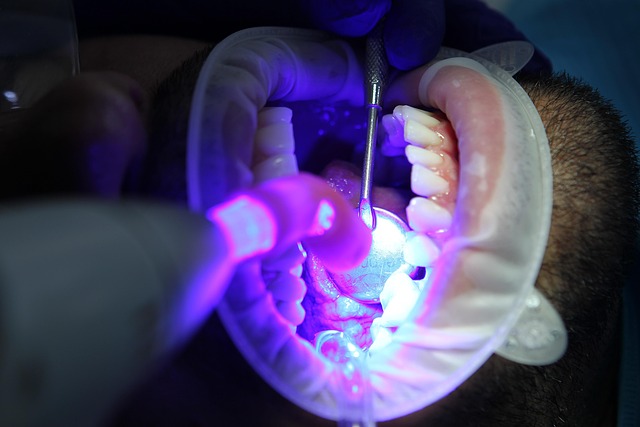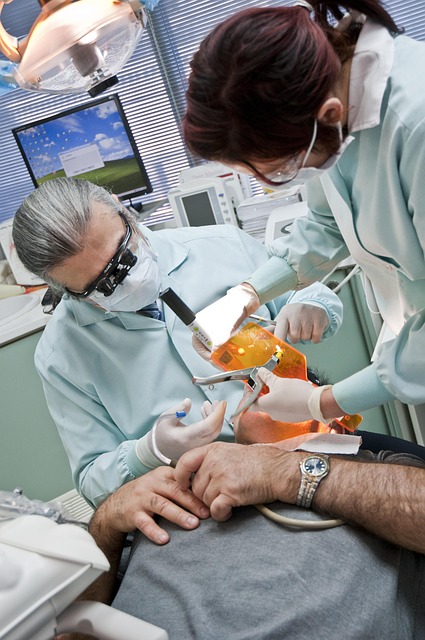Foot warts caused by HPV lead to various growths requiring professional treatment for effective relief. Outpatient wart removal procedures like cryotherapy and laser treatments offer same-day solutions with minimal downtime. Advanced techniques include topical medications and surgical excision, accessible at specialized clinics nationwide. Proper post-treatment care is crucial, including keeping the area clean, wearing loose shoes, and monitoring for infections to prevent recurrence.
Get rid of those stubborn foot warts once and for all! If you’re tired of the itching, pain, or unsightly appearance caused by verrucae on your feet, this guide is for you. We’ll take you through everything you need to know about outpatient wart removal procedures, from understanding the different types and causes to exploring effective treatment options. Learn about common removal techniques, post-procedure care, and recovery tips, helping you make an informed decision for a smooth, wart-free journey ahead.
- Understanding Foot Warts: Causes and Types
- Outpatient Treatment Options for Warts
- Common Removal Techniques Explained
- Post-Procedure Care and Recovery Tips
Understanding Foot Warts: Causes and Types

Foot warts are common skin growths caused by certain types of human papillomavirus (HPV). They can appear as small, hard bumps or larger, flat lesions on various parts of the foot, including the toes, soles, and heel. Understanding their causes and types is essential when considering treatment options like an outpatient wart removal procedure.
There are several types of foot warts, each with its own characteristics. Common warts, also known as verrucae, are rough, grainy growths that often feel hard to the touch. They typically appear on the tops or sides of the toes or feet. Plantar warts, on the other hand, grow into the skin and can cause pain, especially while walking or standing. Flat warts usually develop on the soles of the feet and look flatter and smoother than common warts. While most warts are harmless, some may lead to discomfort, pain, or changes in appearance, prompting individuals to seek wart removal success rates offered by specialized clinics like Coventry Wart Clinic for effective relief. Alternative remedies for removing warts exist, but medical interventions often provide more reliable outcomes.
Outpatient Treatment Options for Warts

Outpatient treatment options offer a convenient and effective approach to wart removal, especially for those with busy schedules or preference for same-day solutions. One popular method is cryotherapy, where liquid nitrogen is used to freeze and destroy targeted warts. This procedure is typically quick and can be performed in a doctor’s office or specialized clinic, such as the Gloucester wart clinic or Bristol-based clinics offering this service.
Laser treatments are another outpatient wart removal procedure gaining popularity. Using concentrated light energy, lasers burn away warts with minimal surrounding skin damage. While it may be slightly more expensive than cryotherapy, many patients appreciate the precision and faster recovery time associated with laser treatments. For those in Coventry or nearby areas, there are specialized clinics offering these advanced outpatient wart removal options, ensuring accessible and efficient care for unwanted warts.
Common Removal Techniques Explained

Wart removal has evolved significantly over the years, offering various techniques to target and eliminate these common skin growths. One of the most popular outpatient wart removal procedures involves applying topical medications that contain salicylic acid or immunomodulators. These medications work by gradually dissolving the wart or stimulating the body’s immune response to fight it off. This method is often painless and can be performed quickly in a healthcare professional’s office, making it a convenient choice for many.
For more persistent warts, especially on sensitive areas like the feet, surgical excision or laser treatment for warts might be recommended. Surgical excision involves cutting out the wart, which is then examined to confirm its nature. In some cases, this can be done under local anesthesia in a private wart removal Coventry clinic. Alternatively, laser treatment for warts uses concentrated light energy to destroy the wart tissue, offering a precise and effective solution. Similar outpatient procedures are also available in wart removal Doncaster clinics, ensuring accessibility for those seeking relief from unwanted warts.
Post-Procedure Care and Recovery Tips

After an outpatient wart removal procedure, such as those offered at private clinics like those in Merseyside St-Helens or Bradford, it’s important to take care and allow time for recovery. The skin around the treated area may be sensitive and slightly irritated for a few days following the treatment. Patients should keep the foot clean and dry, gently washing with soap and water and patting dry rather than rubbing. Avoid soaking feet in water for extended periods as this can re-open the treated site and increase the risk of infection or reinfection.
While healing, it’s crucial to wear loose-fitting footwear that won’t put pressure on the treated area. Sandals or open-toed shoes are ideal. Patients may experience some mild discomfort or itching during the healing process, but this should subside within a few days. If any signs of infection like increased redness, swelling, warmth, or pus develop, patients should contact their healthcare provider immediately. Isotretinoin cream or other prescribed topical treatments might be recommended to prevent reoccurrence.
Removing foot warts effectively is achievable through various outpatient treatment options. From topical treatments to surgical excision, each method offers a unique approach to eliminating these skin growths. Understanding the causes and types of warts empowers individuals to make informed decisions. After undergoing any outpatient wart removal procedure, proper post-care ensures optimal healing and reduces the risk of recurrence. Remember, consulting a healthcare professional is crucial for determining the best course of action tailored to your specific case.
